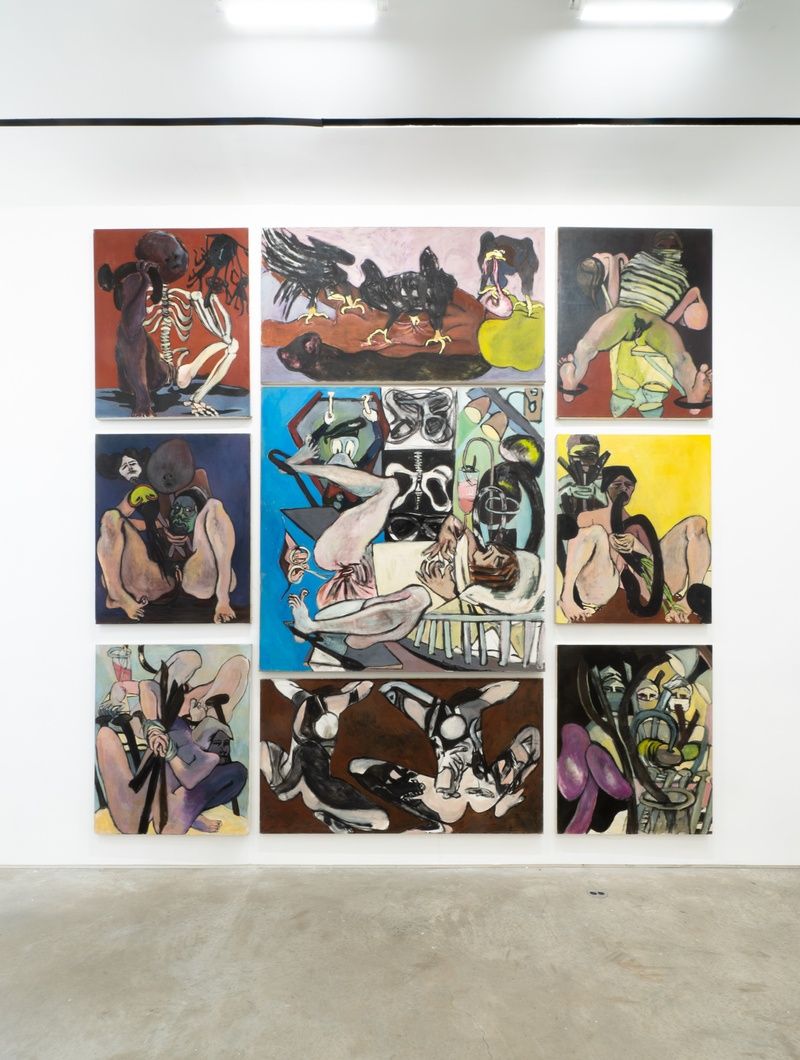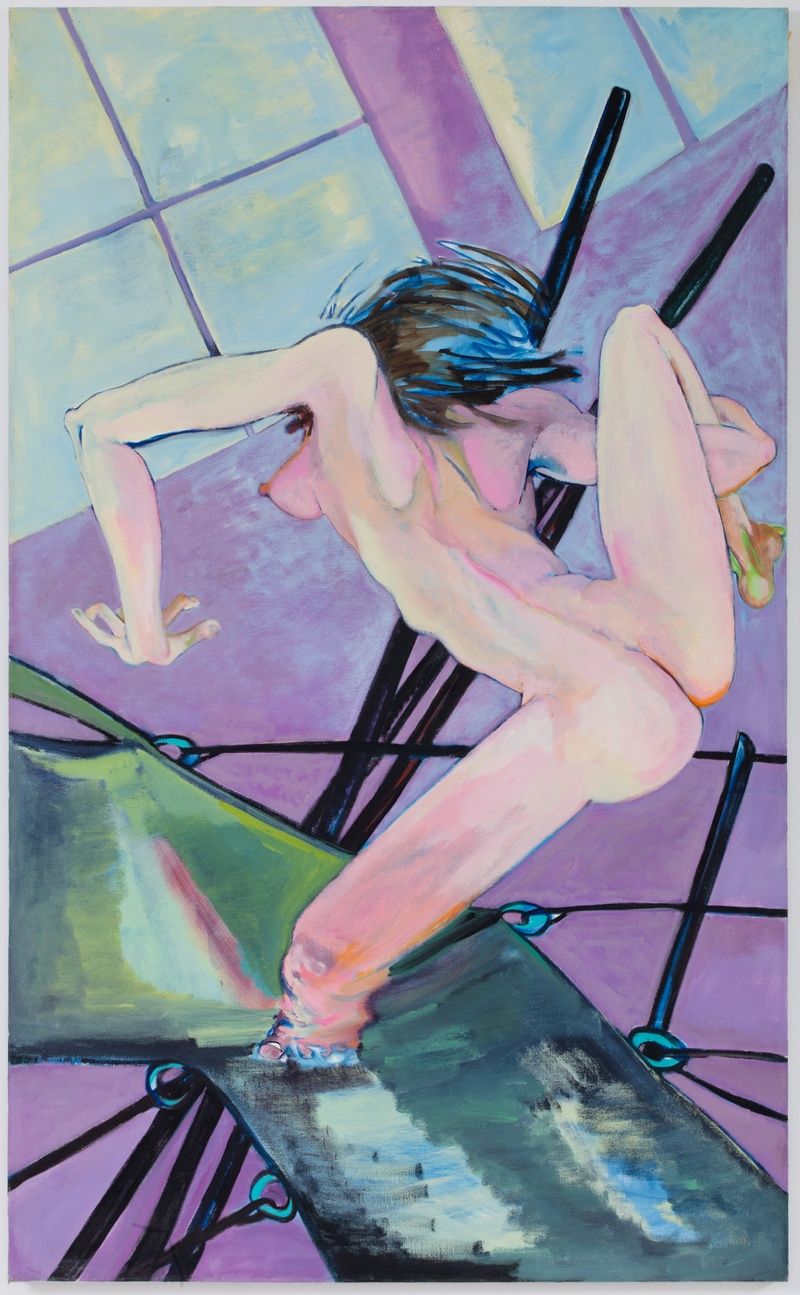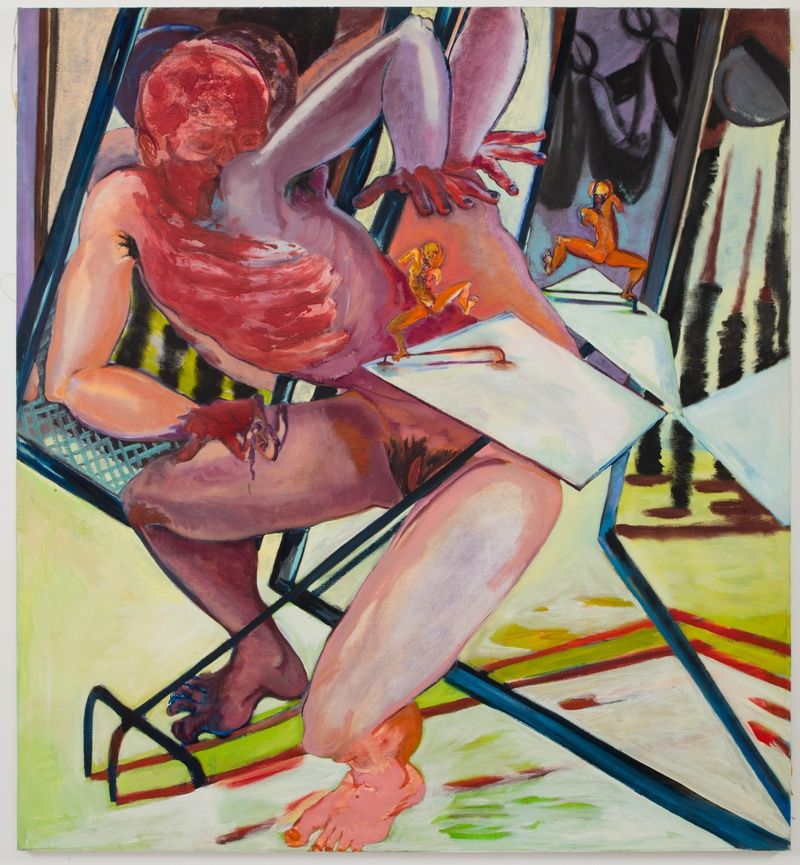Juanita McNeely (b. 1936) moved to New York City in 1967. Amid the rise of second-wave feminism and women’s liberation movements across the country, she conveyed the extreme physicality and movement of the human figure,further informed by her personal experiences of sexism, abortion, and infirmity. Over time, McNeely has developed a powerful visual vocabulary, focused on the human condition depicted in radiant color ranges filled with lightness and shadow—driven by the need to “make the ugly and the terrible beautiful for myself.”
McNeely has always painted figures using the memory and intuition of her own bodily experience. In time, the central figure has become more clearly identifiable as the artist herself. In the ‘80s McNeely spent time traveling overseas and painting. During her travels, an accident occurred that caused damage to her spinal cord. McNeely dealt with this life-altering moment in Triskaidekaptych, working over the period of a year across 13 panels that wrapped around her living space. Hung low to the ground, the work’s immense scale allows viewers to enter into her multidimensional narrative. McNeely had developed her multi-panel format while still in art school. Soon after moving to New York, she produced her seminal 9-panel painting Is It Real? Yes, It Is! (1969), one of the first works to address the issue of abortion, which was then illegal. McNeely had experienced a near-death effort to be treated when she found out she was pregnant soon after having discovered a tumor. The violence and frustration of facing this control over her body deeply informed her work that followed. In McNeely’s own words: “Many times, life’s forces are more powerful than we are, and yet we can face them if we have a standing ground that is our own, that we’ve set for ourselves.”
McNeely was born in St. Louis, Missouri, and lives and works in New York City. Her work was the subject of the survey exhibition Indomitable Spirit curated by Susan Metrican at Brandeis University’s Women’s Study Research Center in 2014. McNeely was part of the Fight Censorship group founded in 1973 by Anita Steckel, alongside Judith Bernstein, Louise Bourgeois, Martha Edelheit, Joan Semmel, Hannah Wilke, and Eunice Golden, among others; as well as Women Artists in Revolution (W.A.R.), Redstockings, and other groups. McNeely has exhibited at venues including the Queens Museum, Art Institute of Chicago, Philadelphia Museum of Art, and Gemeentemuseum in The Hague, among others. McNeely received the Ellin P. Speyer Prize from the National Academy Museum, and honors from the Pollock-Krasner Foundation, the Gottlieb Foundation, and the New York State Council on the Arts. Her work included in the collections of the Saint Louis Art Museum, the National Taiwan Museum of Fine Arts, and the Palacio de Bellas Artes in Mexico City, among others.



